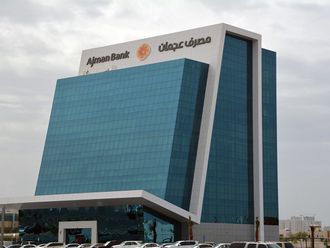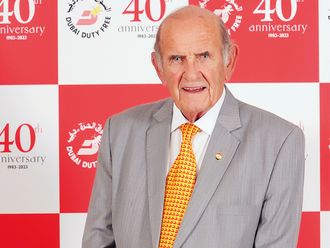
It’s sometimes very difficult to avoid the obvious, however hard the privileged protagonists try. That’s the case in Europe, where differing interpretations of banking union and fiscal union, and pained budget negotiations, keep international investors nervous and markets volatile.
It is only too evident, meanwhile, that conflict in the Middle East is a recurrent threat.
For the medium term, since the US is fast approaching its own budget drama, global stock markets are still feeding on officially-sponsored surges of liquidity rather than any meaningful revival of underlying real growth.
Such is the lack of convincing solutions to the problem of a world economy suffering from the aftermath of overindebtedness that bond markets have maintained their lofty heights, with weak growth dominating as a theme.
Gulf stock and bond markets have mirrored those trends, as marginal proxies to the main strands of the story -- stocks on the defensive or retreat, bonds edging forward or barely holding onto advances.
There is a sense arising now, however, even among policy makers, that the supposed medicine of repeated monetary stimulus isn’t working. Analysts have begun to fret aloud about inflation, which in the mainstream economic mindset isn’t supposed to be a concern while growth is absent.
More observers are becoming aware of stagflation: the combination of high inflation and low growth which transpires when governments become obsessed with fuelling demand rather than ensuring the supply side is responsive. They conveniently forget that flexible structures would actually have substantially obviated the need for demand propulsion. Arguably, the supposed output gap is something of a work of fiction, at least in its implications for policy.
In the meantime, the markets have reflected sugar rushes of excitement without the building blocks of true wealth creation. The West is worried about turning Japanese, without seemingly recognizing that the stasis in growth there relates fundamentally to the absence of ‘creative destruction’ in its corporates and banks for over two decades. The so-called zombie condition has been amply diagnosed, but not overhauled, as a matter of politics and society.
Low interest rates have prevailed throughout in Japan, alongside its ossification with low growth and inflation. The impetus for change is lacking. Will it transpire in the West, whose markets the giants of the East, and the oil producers of the Gulf, are still considerably geared to service?
The evidence on that score is that optimism is misplaced, as neither the US nor Europe seems attuned to necessary reform. Global markets, the Gulf included, await some kind of resolution.
Evidently too, the GCC is not alone in its attachment to the persistence of cheap credit. That symptom has been even more keenly felt in Hong Kong, for instance, where the property market has been subject to administrative intervention (controls on foreign buying) to try to offset the effects of a partial policy setting evidently misaligned for the domestic need.
Just as in the Gulf, the offsetting merit of currency stability against the dollar is the trump card.
Riding an escalator amid the bustle of China’s special administrative region you will be reminded once again of easy money’s doubtful flipside. Bank advertisements exhort you to deposit your savings at a high interest rate, of 2 per cent! You have to chuckle, even though it’s a familiar joke by now.
Frankly, markets are being anaesthetised while taxpayers and savers pay the price of this supposed worldwide panacea. Investors unfortunately may have to participate in that charade if they want to avoid their wealth being stripped by incipient inflation.












